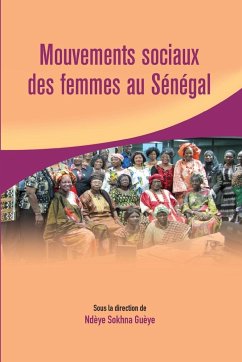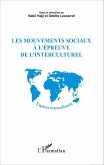CODESRIA, UNFEMMES and UNESCO, partner in research, the results of which for Senegal are set out in this book. It has been found that, despite their demographic weight, women are still marginalized in key sectors of the economy. Compared to men, they are less educated (often for cultural reasons), less paid, more likely to work in the informal sector, with a higher level of vulnerability and vulnerability. Faced with neoliberal globalization, they are the greatest victims of economic, financial and political crises. At the sociopolitical level, they continue to be subjected to multiple and multifaceted violence and are still very little involved in making decisions governing their lives and their society. Moreover, the social division of labor in households reinforces, more than ever, the invisibility of the tasks linked to their role of reproduction. Le CODESRIA, ONUFEMMES et l'UNESCO, partenaires dans la recherche dont les résultats pour le Sénégal sont exposés dans ce livre, ont choisi de mener les études dans trois pays anglophone, lusophone et francophone, qui, par leurs aventures coloniales et leurs évolutions politiques et institu- tionnelles, sont plus ou moins les représentatifs de l'Afrique de l'Ouest. Il a été constaté qu'en dépit de leur poids démographique, les femmes sont encore marginalisées dans les secteurs clefs de l'économie. Compa- rativement aux hommes, elles sont moins instruites, (souvent pour des raisons culturelles), moins rémunérées, plus nombreuses à travailler dans le secteur informel, avec un taux de précarité et de vulnérabilité plus important. Face à la mondialisation néolibérale, elles sont les plus grandes victimes des crises économiques, financières et politiques. Au plan sociopolitique, elles continuent à faire l'objet de violences multiples et multiformes et sont encore très peu à participer à la prise des décisions régissant leurs vies et leur société. Par ailleurs, la division sociale du travail dans les ménages conforte, plus que jamais, l'invisibilité des tâches liées à leur rôle de reproduction.
Hinweis: Dieser Artikel kann nur an eine deutsche Lieferadresse ausgeliefert werden.
Hinweis: Dieser Artikel kann nur an eine deutsche Lieferadresse ausgeliefert werden.








